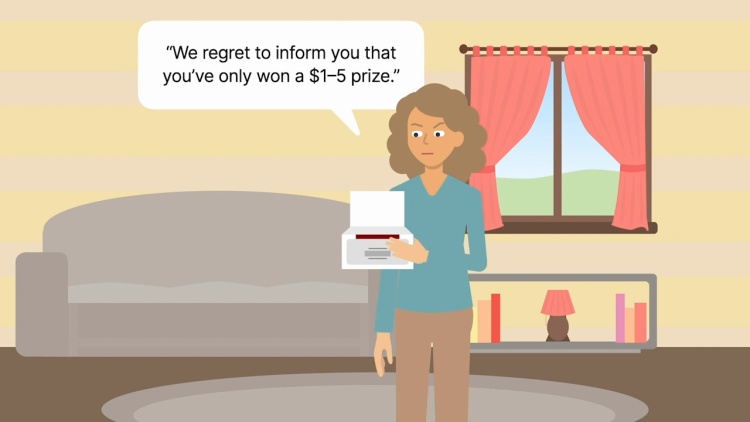James v. McDonald’s Corp.
United States Court of Appeals for the Seventh Circuit
417 F.3d 672 (2005)

- Written by Josh Lee, JD
Facts
Linda James (plaintiff) purchased fries at a restaurant owned by McDonald’s Corporation (McDonald’s) (defendant) while McDonald’s was running a promotional game called Who Wants to Be a Millionaire. The official rules of the promotion were posted openly in participating restaurants near the food counter, on the back of in-store tray liners, and near the drive-thru window. The cartons holding the fries also had language directing participants to see the official rules for details. James claimed that she received a grand-prize game card with her fries, which was denied by McDonald’s. Subsequently, James learned that employees of the firm handling the promotion had stolen grand-prize game cards. James sued McDonald’s for fraud, claiming that her winning card was fraudulently denied and that the public was fraudulently induced into buying McDonald’s products because the odds of winning were less favorable than disclosed. McDonald’s filed a motion to compel James to arbitrate these claims based on the official rules of the promotion. James claimed that she was not bound by the arbitration provisions in the official rules because she had not agreed to the official rules. The district court granted the motion, and James moved for the district court to reconsider the ruling. The district court declined to reconsider and dismissed James’s claims. James appealed to the United States Court of Appeals for the Seventh Circuit.
Rule of Law
Issue
Holding and Reasoning (Ripple, J.)
What to do next…
Here's why 911,000 law students have relied on our case briefs:
- Written by law professors and practitioners, not other law students. 47,100 briefs, keyed to 997 casebooks. Top-notch customer support.
- The right amount of information, includes the facts, issues, rule of law, holding and reasoning, and any concurrences and dissents.
- Access in your classes, works on your mobile and tablet. Massive library of related video lessons and high quality multiple-choice questions.
- Easy to use, uniform format for every case brief. Written in plain English, not in legalese. Our briefs summarize and simplify; they don’t just repeat the court’s language.





